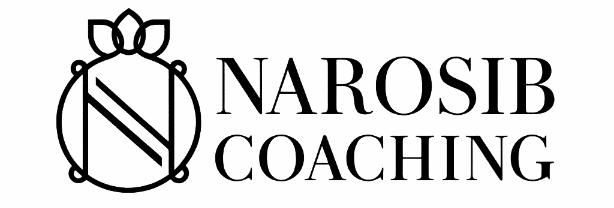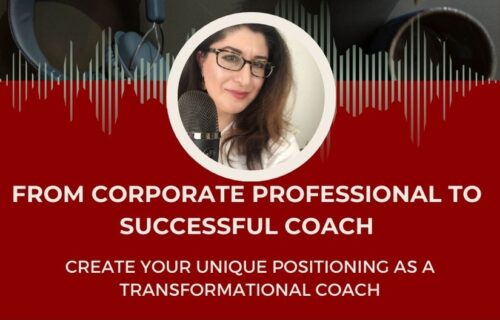Imposter Syndrome:Why the Most Capable Women in STEM Feel Like Frauds
You can hold a PhD, lead multi-million euro projects, manage complex systems—and still wake up wondering:
“Am I really good enough?”
“What if this promotion was a fluke?”
“What if someone realizes I’m not as smart as they think?”
This is imposter syndrome in women in STEM, and it’s far more common than most people realize.
In my coaching work with engineers, scientists, and project leads, I hear these quiet doubts all the time—from high-achieving women who are deeply capable, but privately questioning their own legitimacy.
If that sounds familiar, here’s what you need to know:
You’re not broken. You’re not alone. And no—it doesn’t mean you’re unqualified.
Table of Contents
What Is Imposter Syndrome—Really?
Coined by psychologists Pauline Clance and Suzanne Imes in 1978, imposter syndrome refers to the persistent belief that your success is undeserved—even when there’s ample evidence to the contrary.
Claire Josa , an expert in the field of imposter syndrome defines it as “the secret fear of being found out as not good enough, despite external success.” In her book Ditching Imposter Syndrome, she highlights how this internal fear often drives brilliant people to overwork, downplay achievements, or stay quiet when they should speak up.
Meanwhile, Brené Brown connects imposter syndrome to shame-based fear—the belief that “I’m not enough,” which can be reinforced by environments that reward performance over presence, and certainty over curiosity.
For women in STEM, these environments are often the norm.
Why Imposter Syndrome Hits So Hard in STEM fields
STEM fields ( Science, Tech, Engineering, Math) are built on precision, evidence, and correctness.
And while those are essential to the work, they can also reinforce a culture where ambiguity and vulnerability are quietly punished: everything has to be accurate, perfect and correct. There is often little room for error.
That’s why imposter syndrome in women engineers and scientists doesn’t always look like insecurity.
It looks like:
- Over-preparing and never feeling “ready” to speak
- Earning multiple certifications before applying for a stretch role
- Holding back insights until they’re perfectly formulated
- Minimizing success by attributing it to luck or external support
These patterns are reinforced not just internally—but by work cultures that reward perfection, overlook lived experience, and often fail to reflect women’s value back to them.
What I’ve Learned Coaching Women in STEM
After years of working with professionals across tech, science, and consulting, here’s what I’ve seen time and again:
💡 Imposter syndrome is often a sign of high standards—not low ability.
It shows up in people who care deeply about doing things well—but rarely stop to acknowledge how far they’ve come.
💡 Logical, high-achieving women often dismiss or overlook their emotional intelligence.
In analytical environments, emotional insight gets labelled as “soft.” But it’s actually foundational to effective leadership.
💡 STEM culture often rewards invisibility disguised as humility.
Many women believe that doing excellent work quietly should be enough. But in reality, impact depends on visibility, advocacy, connections and voice.
What You Can Do Differently
You don’t need to “fix” yourself. You need to lead through your imposter thoughts, not around them.
1. Redefine “Qualified”
You don’t need to know everything.
You need to trust your perspective as it stands now. You’ve earned it—through lived experience, deep thinking, and consistent delivery.
2. Stop Waiting for Confidence to Lead
As Brené Brown reminds us, “You can’t get to courage without walking through vulnerability.”
While confidence is something we get through results, courage is a resource we all have within ourselves. Courage helps us show up
Confidence is a byproduct of showing up, again and again, and courage is what moves us to show up!
3. Reframe Self-Doubt as a Signal, Not a Diagnosis
Claire Josa notes that imposter syndrome tends to flare up right before a growth leap.
So when it shows up, ask yourself: “Am I actually underqualified—or am I just stepping into something new?”
That shift alone can be the difference between holding back—and moving forward.
Final Thought
If you’re a woman in STEM experiencing imposter syndrome, it doesn’t mean you don’t belong.
It means you’ve been navigating environments that rarely affirm your brilliance.
You don’t need to wait until you feel more ready.
You’re already capable. It’s time to own it.
🎧 Want to Hear the Full Conversation?
In Episode 7 of The Heart of the Equation, we explore why imposter syndrome is so common among women in STEM—and what it really takes to move through it with grounded confidence.

About Me
Hi, I’m Sara.
I coach rising professionals in complex roles—and mentor certified coaches building values-aligned businesses on the side of their full-time careers.
With a background in engineering, supply chain, entrepreneurship, and digital strategy, I blend practical systems with deep coaching—helping people lead with clarity, calm, and conviction.

Ready to Lead Without Second-Guessing?
If you’re tired of feeling like you need one more degree, certification, or perfect moment to step forward—let’s shift that pattern now.

A 90-minute coaching intensive to help you reset, refocus, and act with clarity—no long-term commitment needed.
Or if you’re building a coaching business:



